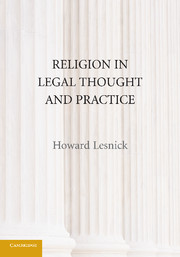Book contents
- Frontmatter
- Contents
- Preface
- I INTRODUCTIONS
- II MORAL OBLIGATION AND RELIGIOUS BELIEF
- 3 What Is the Relation between the Moral Dimension of Obligation and Religious Belief?
- 4 Does Religious Belief Necessarily Have Moral Content? Does Religious Belief Have any Necessary Moral Content?
- 5 What Are the Bases of Resistance to Religiously Grounded Morality?
- 6 Concepts of God, Scripture, and Revelation: The Meanings of “Divine Inspiration”
- 7 Modes of Religiously Grounded Moral Discernment
- III RELIGION AND SOME CONTEMPORARY MORAL CONTROVERSIES
- IV THE INTERACTION BETWEEN RELIGION AND THE SECULAR LAW
- V RESPONDING TO RELIGIOUS DIVERSITY
- VI RELIGIOUSLY GROUNDED MORAL DECISION-MAKING IN PROFESSIONAL LIFE
- Copyright Permission Acknowledgments
- Authors of Works Reprinted
- Scriptural Passages
- Index
3 - What Is the Relation between the Moral Dimension of Obligation and Religious Belief?
Published online by Cambridge University Press: 05 June 2012
- Frontmatter
- Contents
- Preface
- I INTRODUCTIONS
- II MORAL OBLIGATION AND RELIGIOUS BELIEF
- 3 What Is the Relation between the Moral Dimension of Obligation and Religious Belief?
- 4 Does Religious Belief Necessarily Have Moral Content? Does Religious Belief Have any Necessary Moral Content?
- 5 What Are the Bases of Resistance to Religiously Grounded Morality?
- 6 Concepts of God, Scripture, and Revelation: The Meanings of “Divine Inspiration”
- 7 Modes of Religiously Grounded Moral Discernment
- III RELIGION AND SOME CONTEMPORARY MORAL CONTROVERSIES
- IV THE INTERACTION BETWEEN RELIGION AND THE SECULAR LAW
- V RESPONDING TO RELIGIOUS DIVERSITY
- VI RELIGIOUSLY GROUNDED MORAL DECISION-MAKING IN PROFESSIONAL LIFE
- Copyright Permission Acknowledgments
- Authors of Works Reprinted
- Scriptural Passages
- Index
Summary
“Without God, everything is permitted.”
So, famously, spoke Dostoyevsky's Ivan Karamazov. One who would make a statement like Ivan's (whatever his or her religious persuasion) would likely also intend it to imply, as a corollary, “With God, some things are not permitted.” Taken together, the assertion is that religiously grounded morality rests on a firm foundation, but that philosophically grounded (secular) morality cannot. This chapter explores the meaning of such an assertion, its truth (or falsity), and its implications. It also considers what it is that makes it appropriate to term a belief or worldview “religious” (or “secular”).
UNSPEAKABLE ETHICS, UNNATURAL LAW ARTHUR ALLEN LEFF
Duke L. J. 1229 (1979)
Consider what a “finder” of law must do. He must reach for a set of normative propositions in the form “one ought to do X,” or “it is right to do X,” that will serve as the foundation for a legal system. Once found, these propositions must themselves be immune from further criticism. Of course, once the finder finds what it is he is looking for, his work is not necessarily over. He may still work with the propositions, show their interactions, argue about their reach and implications, rationalize, restate, and reflect. But the propositions he has found are the premises of his system, and once found they cannot just be dispensed with. That which is found becomes a given for the system, however the system may be systematically manipulated. It is not created by the finder, and therefore it cannot be changed by him, or even challenged.
- Type
- Chapter
- Information
- Religion in Legal Thought and Practice , pp. 31 - 65Publisher: Cambridge University PressPrint publication year: 2010



